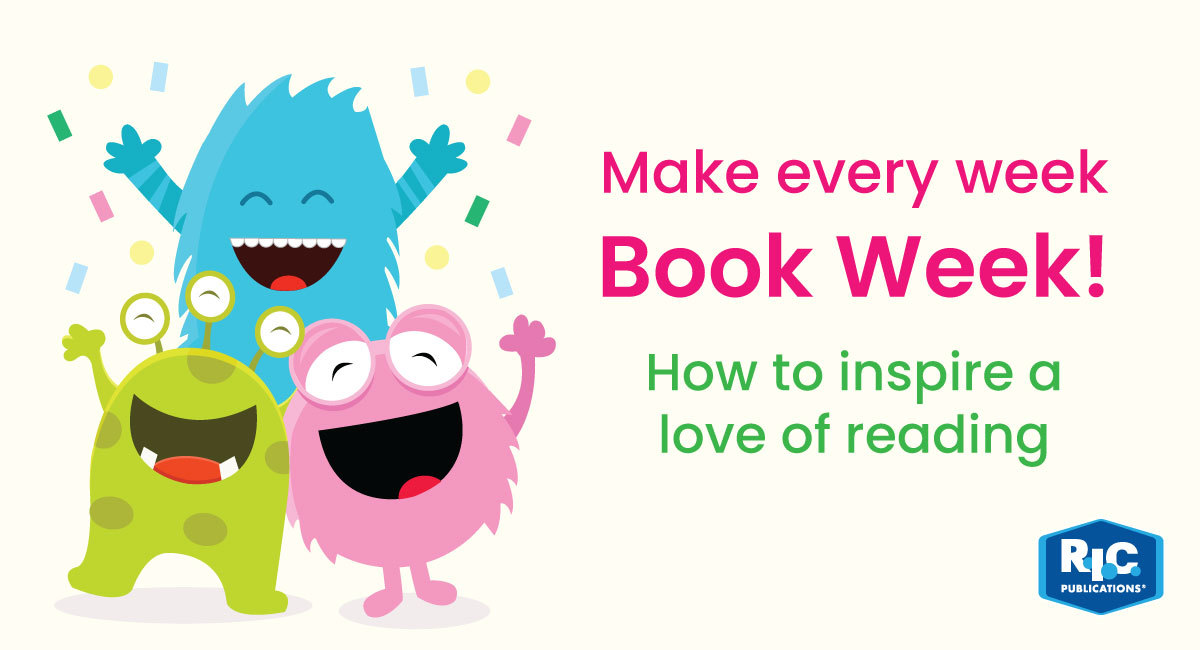- Wednesday 07 October 2020
- 0 Comments
Inspiring children to love reading can change lives! According to The Conversation, research shows the importance of parents reading with children – even after children can read; exposing young readers to children’s literature has myriad benefits from better academic outcomes, to developing emotional intelligence and creativity, as well as boosting wellbeing. In fact, the OECD finds that reading for pleasure is more important to a child’s academic success than the parents’ socio-economic status.
And it’s more than a life skill; it’s a thing of joy. What can be more incredible for a child than to imagine, to enter the pages of a new world?
But with so much entertainment of the instant gratification variety out there, many parents and teachers can struggle to inspire a love of reading in children; perhaps they don’t find time to read for pleasure themselves, or even though they personally love reading, their children seem less interested. To celebrate our excitement at the upcoming Book Week from October 17 to 23, themed on curious creatures and wild minds, we’d like to give you some tips on how to help your own curious creatures to go wild with reading!
Create motivation
Urban literacy consultant Kathryn Starke writes here about the importance of “creating motivation” in fostering a love of learning; she finds that the best-way to do that is a well-stocked bookshelf, matching students’ interest and reading level.
Beloved children’s writer Cressida Cowell (of How to Train Your Dragon fame) writes in The Independent about the importance of following your childrens’ interests – as she puts it, “there really is a book for everyone”. If they’re not interested in what they’re reading at school, parents can check out your local library, head to a bookstore, or browse the online shelves at book retailers like Better World Books (a great US resource with free shipping, which donates books to literacy projects). Teachers and parents alike can have great conversations about what children are interested in and recommend books accordingly.
You can also keep an eye out for Street Libraries – there’s thousands across Australia, where you can pick books up and drop them off as you like - and some schools have a similar nook where children and their parents can leave books they’re no longer reading and take new ones.
Finally, make sure there’s titles available to your young readers that reflect their lives and the lives of their classmates, and include people like them as well as people not like them (in terms of gender, cultural background, etc.) Representation is important for engagement – for example, research shows that males outnumber females in top-selling children’s picture books, whether in leading roles or speaking roles; being proactive in addressing biases on the bookshelf opens up children’s minds and helps them value diversity, while young readers from CALD backgrounds will be inspired by seeing children like themselves on the page, doing great things.
Let them choose
There’s not many things you get to choose when you’re young, and it can be frustrating when you want fish and chips for dinner every night but your plate is still full of veggies. Fortunately, there are some choices that kids can make for themselves, and they love to do it – choosing what books to read is an empowering experience!
Practice guided reading
Parents play a key role in fostering love of reading: make reading time into quality time that you can enjoy together as a family, and try to read together at least a little bit every day, incorporating story time into your daily routine. If you’re finding you struggle to find time to read together, that’s okay too – read together when and where you can. Books like the Tashi series read like a series of related short stories, so you can just pick up where you left off without forgetting what you were up to, and they’re a great hit with kids!
Guided reading is great in the classroom too; it’s an opportunity to introduce students to all sorts of areas they may be interested in, while helping them to understand the text better and have richer reading experiences by sharing background knowledge on the subject matter.
Show children how much you love reading
Whether you’re a parent or teacher, if you love books, that love can inspire young readers! Especially while they’re young, impressionable and admiring of you, this can make such a difference. Actor LeVar Burton, of Reading Rainbow fame, shares here how as a child, his mother’s avid reading introduced him to the joy of reading for pleasure, and he was inspired by teachers whose passion for a subject similarly inspired passion in him. Model your own love of reading, and help your young readers turn the first pages of their own reading story.
We hope we’ve helped you to develop a lifelong love of reading in your young learners! If you’d like to know more, explore our English literature teaching resources, and keep an eye on our teaching ideas blog.
